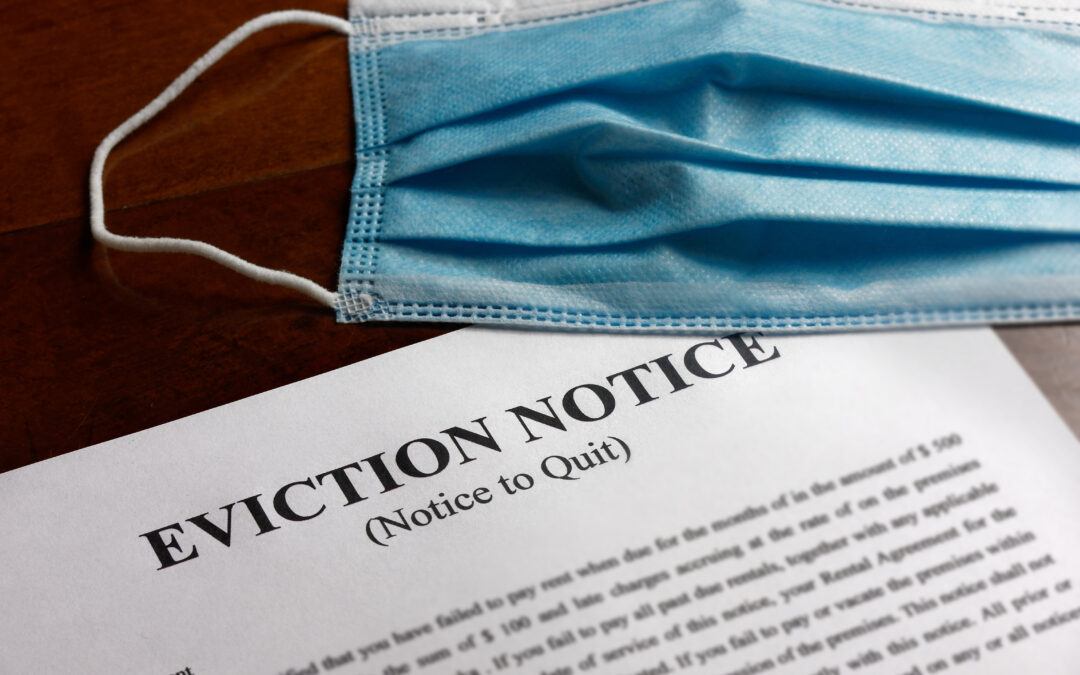No. Many, but not all, evictions are banned temporarily.
So, what does a landlord or tenant need to know about the (recently extended again) ban on evictions due to the ongoing COVID-19 pandemic?
Rent is still owed
The ban on evictions does not mean that rent is no longer owed. Any existing agreement between the landlord and the tenant describing how much rent is owed each month is still in effect – only the penalty of eviction from the property is on hold.
The Coronavirus Relief Bill does provide for up to 15 months of rental assistance through the end of September, 2022 for states to provide to their qualifying residents. Either the tenant or the renter may apply for the assistance, every 3 months, but there are a number of Federal and State qualifications which must be met.
Only some evictions are banned
The CARES Act describes what properties are included and excluded from this temporary ban on evictions.
It must be a residential lease on a ‘covered dwelling’ which is located on a ‘covered property.’
To be a ‘covered dwelling,’ the tenant has to live there. So, it can’t be a separate location leased as a second home or vacation home. And it must be a residence, so not a standalone building for conducting some business.
To be a ‘covered property,’ it must be one of the following:
- A property which participates in a covered housing program defined in the Violence Against Women Act of 1994 (assisted housing, public housing, homeless service provider, etc)
- A property which participates in the rural housing voucher program set up by the Housing Act of 1949
- A property which has a federally backed mortgage loan
- A property which has a federally backed multifamily mortgage loan
What exactly is banned during this time?
During the period this moratorium is in effect, the landlord cannot pursue any legal filing to recover possession of the property due to nonpayment of rent or other fees or charges.
In addition, the landlord cannot charge fees, penalties or other charges related to the nonpayment of rent.
The landlord must still provide a notice to evict 30 days in advance, but the landlord cannot deliver such a notice until the moratorium has ended.
Why are evictions being banned?
It’s actually primarily a public health issue.
The intent is not to punish landlords by depriving them of the rent they are owed for their properties.
Instead, the purpose is to help reduce the spread of the coronavirus that causes COVID-19 by keeping people out of group shelters and crowded living conditions where possible – by helping them stay in their previous homes.
It’s also part of the recognition by the Federal government of the incredible financial and economic crisis the pandemic has created in the United States. There are simply more people struggling to come up with rent than there were before the virus hit, due to loss of jobs, reduced hours, etc.
Navigating Federal and State laws can be complicated in the best of times. Throw in hurried changes to existing laws in a time of global crisis, and it can be even more difficult to know exactly what your rights are, and how to protect them.
Are you a landlord or a tenant concerned about an eviction? Do you need good legal assistance to help protect yourself in these troubled times? We can help you. Contact us here on our website, or by calling 361-578-7200, or even by texting Leslie at 361-648-6888.
We know the law, and we can help you seek the protections and relief you deserve.

